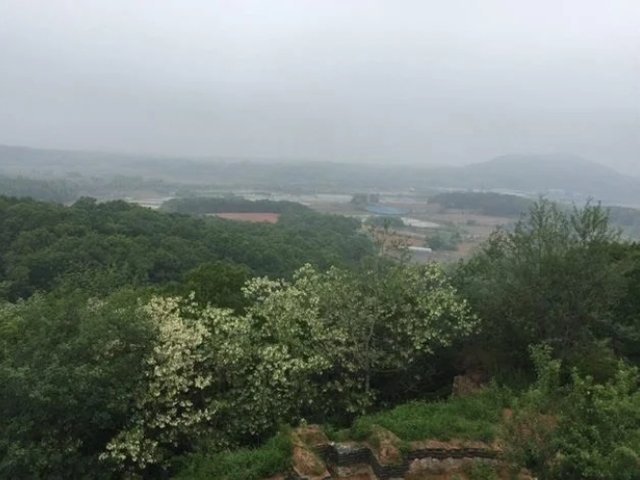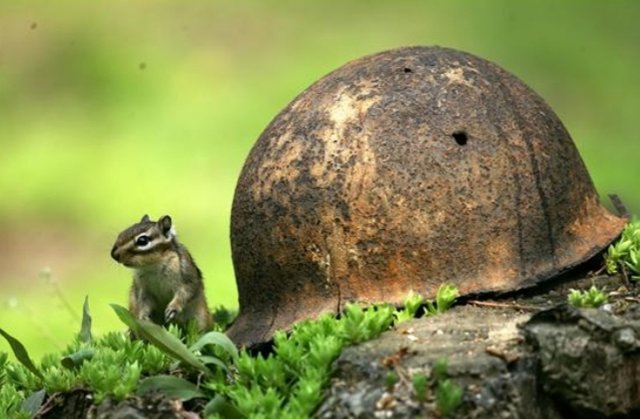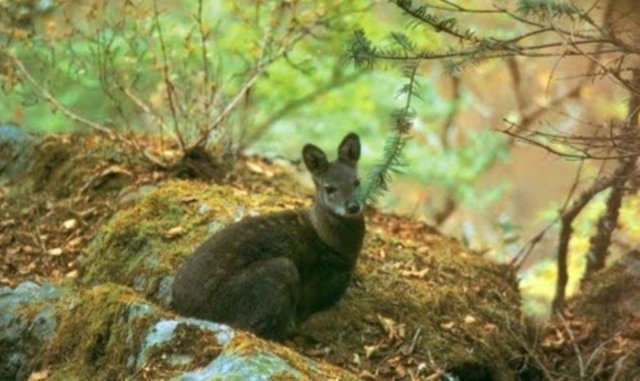The Nature of the DMZ, a gift for the world
"Demilitarized Zone (DMZ) is a gift of nature for the world." It was at the opening address of the 2015 World Leaders Conservation Forum in the United States, a well-known journalist and scholar, Alan Weizman,
Much later than just 13 years after the truce, the world has already paid attention to the nature of the DMZ. In 1966, at the Pacific Science Conference in Tokyo, a proposal to promote the DMZ as Korea's first national park was adopted. The joint investigation team was formed around that year by Harold Coolidge, president of the International Union for Conservation of Nature (IUCN) and Professor Kang Young Sun of Seoul National University. With the help of Smithsonian, a six-year ecosystem survey has begun, and a 25-year long-term research plan has been presented. However, only two years later, the ecosystem survey was suspended without a report due to the incident of the armed services.

The ecosystem survey in the DMZ was initiated only by the Ministry of Culture and Public Affairs in 1974, and sporadic surveys were conducted by the Ministry of Environment, the Forestry Agency, and the Cultural Heritage Administration. It is 2014 that it went into full-scale investigation. Every year at the National Ecology Park under the Ministry of Environment, they have started an ecosystem survey of members of the DMZ. In December of last year, we collected the results of the ecosystem survey conducted by members of the DMZ for more than 40 years and published the 'DMZ's comprehensive report on biodiversity'. The DMZ's creature and its value, which we wanted to know about 50 years ago, are now known.
Members of the DMZ are an unquestionable report of ecosystems. There are about 4,870 biodiversity species in seven areas such as mammals, birds and insects, which account for about 20% of the Korean Peninsula and about 40% of the endangered species. In particular, cranes, shorebirds, seals, half-breasted bears and musk deer are endangered species that would have been permanently lost on the Korean Peninsula due to development and poaching, if not DMZ.
Now, a few surveys have been done about what they live in the DMZ. It is now the beginning of a longer journey to research, discover and protect the phenomena and characteristics of the ecosystem here over the long term. The DMZ is a gift given to the earthly people, not only to us living on the Korean Peninsula. If the Korean War was an armed conflict of ideological confrontation, DMZ is a natural gift that heals. The sorrow and suffering of war and division are being reborn as a precious life in the DMZ.


great example of how nature could be helpful to mankind
Nature is a big healer which is core of DMZ
By the way I loved the pictures you got some amazing skills buddy.
Keep up with great work👍
Posted using Partiko Android
가장 치열한 전장인데 아이러니하게 자연의 천국
Keep up the great work and beautiful images
Posted using Partiko Android
짱짱맨 호출에 응답하였습니다.
Congratulations @bride777! You have completed the following achievement on the Steem blockchain and have been rewarded with new badge(s) :
You can view your badges on your Steem Board and compare to others on the Steem Ranking
If you no longer want to receive notifications, reply to this comment with the word
STOPDo not miss the last post from @steemitboard:
Vote for @Steemitboard as a witness to get one more award and increased upvotes!